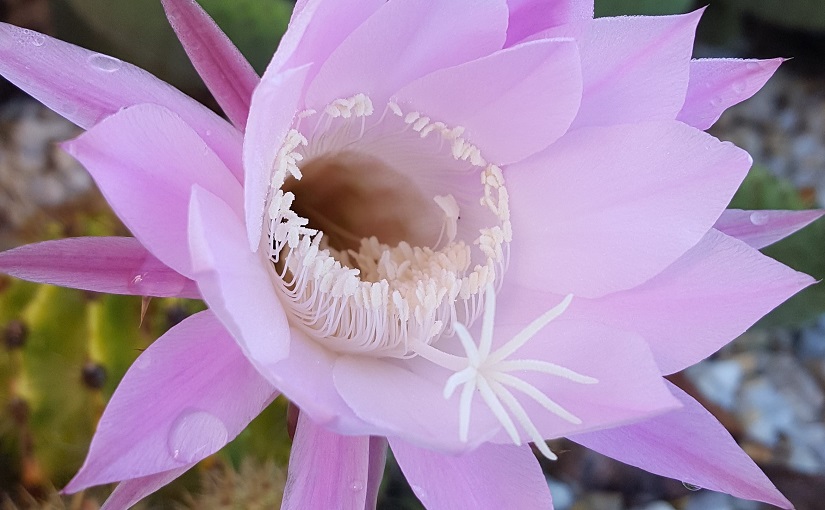In all of life, doesn’t everything we do matter? Everything, eventually, touching upon others through the words, thoughts or actions we’re choosing. Isn’t it all rippling out in every direction to become part of everyone’s lives? We might believe or feel we’re of little consequence; but, in reality, it’s so far from true.
We always make a difference. So, bringing full attention to those choices might dramatically change the realities we’re all living with. If, instead of carelessness or self-interest, we acted on compassion or love, wouldn’t that ripple out into the world? Potentially, sweeping others along with it.
It’s fascinating to consider the nature of reality: ways things join together in chains of causality or complacency; ways attitudes or actions spread so contagiously; how that might shift things one way or another (Notes One). It seems undeniable we all play a part in it; whether or not we’re being deliberate.
All we do serves as an example, a validation, an encouragement, a challenge – creating impacts and setting standards within our increasingly wide social environment. These days, where little remains hidden and everything’s interconnected, isn’t it time we awoke to that potential?
It can’t be easy making a difference, though. Waking up within these complex, fast-moving systems and trying to find our way within them must be breaking new ground? Where can we find proven ideas for how to broach this? No human ever having lived within these conditions, any strategies can’t actually be tried and tested (Notes Two).
And there’s so much to care about in this world; so many issues we’d rightly feel inspired to fight for. In every area there are important battles to be fought around “what it means to be human”. Modernity wraps its tendrils throughout our lives; challenging us to uphold what matters and discard whatever’s working against it.
Within that, living alongside one another can seem almost indescribably hard. While we might not always agree – often, over issues that truly do matter – could there still be space on the edges of us to accept others as they are while holding to those higher values or perspectives that may be needed? What do we achieve when we don’t make that space?
Tolerance may never be easy: allowing something we disagree with to exist in our presence, unchallenged. And, with choices said to define us, it’s perhaps inevitable our lines of identity become points of conflict: if self is on the line, it’s almost natural we’d attack the opposing ideas that threaten us (Notes Three).
Giving people space to work out their thoughts without insisting on our own begins to seem a surprisingly generous attitude. Especially when there’s so little time for hearing others out or discussing things in all their fullness – when we’re squeezing meaningful communication into stolen, passing moments.
Can life happen that way, or only this distracted, half-finished echo of it? So, while everything matters, carving out time or space – physically or psychologically – to do it justice sometimes seems an impossible task.
Notes and References:
Note 1: One thing leads to another
Note 1: All we want to do passes through community
Note 1: Is this the ultimate test?
Note 1: Questions around choice
Note 1: This thing called love
Note 2: Would we be right to insist?
Note 2: Imperfection as perfection?
Note 2: Problems & the thought that created them
Note 2: Doing the right thing, we erase consequences
Note 2: What if solutions aren’t solutions?
Note 3: Letting people change
Note 3: Education as a breaking away?
Note 3: Thoughts of idealism and intolerance
Note 3: Authenticity & writing our own story
Note 3: Making things up as we go along

